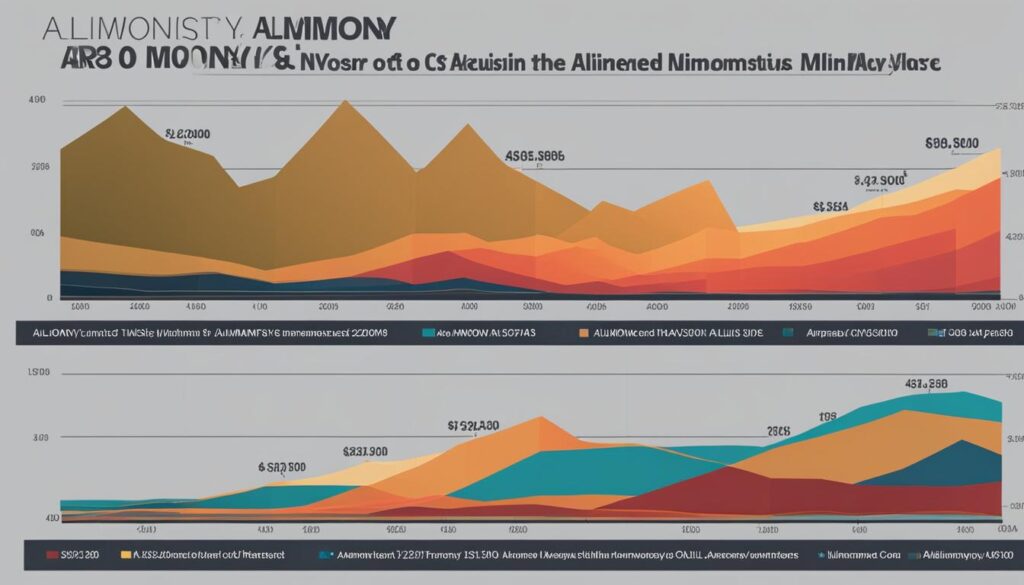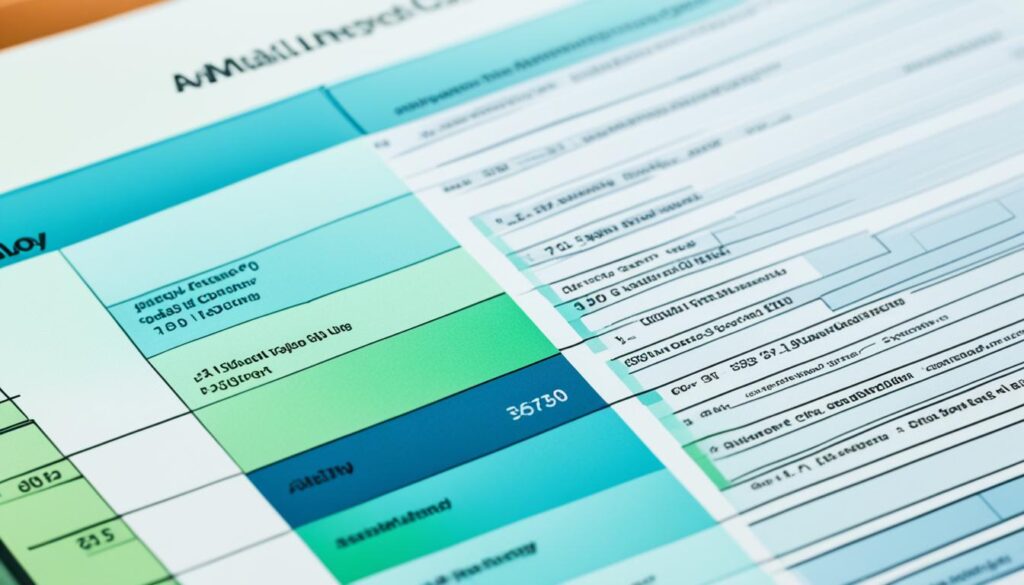Did you know that having a job does not automatically disqualify you from receiving alimony?
In Arizona, divorce courts have the power to award spousal maintenance, also known as alimony, to a spouse during or after a divorce if they meet certain qualifications. To establish eligibility for alimony, the court considers factors such as insufficient property to support oneself, inability to obtain employment, contributions to the spouse’s education or career, and decreased income or career opportunities. Even if you are employed, you may still be eligible for alimony if you can demonstrate a need and the court determines that your spouse has the ability to pay.
Key Takeaways:
- Even if you are employed, you may still be eligible for alimony
- Factors such as insufficient property and inability to obtain employment are considered in determining eligibility for alimony
- Contributions to the spouse’s education or career and decreased income or career opportunities can also impact eligibility for alimony
Who Qualifies for Alimony in Arizona?
In Arizona, eligibility for alimony, also known as spousal support, is determined by several factors. To qualify for alimony, you must demonstrate a genuine need for financial assistance and meet specific requirements set by the court.
In order to establish your eligibility for alimony, you may need to prove:
- Insufficient property or assets to support yourself
- Inability to secure employment
- Contributions made towards your spouse’s education or career advancements
- Significant decrease in income or career opportunities as a result of the marriage
The court considers these factors to determine whether alimony should be awarded. Even if you are employed, you may still be eligible for spousal support if you can demonstrate a genuine need for financial assistance.
If your spouse is seeking alimony from you, it is essential to demonstrate their lack of need and your inability to pay. Presenting clear evidence supporting your case can significantly impact the court’s decision.
Relevant Quote:
“When it comes to alimony qualifications in Arizona, providing evidence of your financial need and meeting the court’s requirements is crucial. By establishing a genuine need for spousal support, you increase your chances of being awarded alimony during divorce proceedings.”

Qualifications for Alimony in Arizona – A Summary
| Qualifications | Details |
|---|---|
| Insufficient Property | Prove an inadequate amount of property or assets to support oneself financially. |
| Inability to Obtain Employment | Establish a genuine inability to secure employment despite reasonable efforts. |
| Contributions to Spouse’s Advancement | Show significant contributions made towards your spouse’s education or career advancements. |
| Decreased Income/Career Opportunities | Demonstrate a substantial decrease in income or career opportunities due to the marriage. |
How Much Alimony Can I Expect and How Long Will it Last?
When it comes to alimony in Arizona, the amount and duration of spousal support can vary based on a variety of factors. The court takes into consideration the qualifications for alimony, including the standard of living established during the marriage, as well as the age, health, earning capacity, and financial resources of both parties involved.
The duration of alimony is primarily determined by the length of the marriage. However, it’s important to note that under certain circumstances, the duration of alimony can be modified. For instance, if there is a substantial change in circumstances, such as a significant increase or decrease in income, the court may consider adjusting the duration of spousal support.
While negotiating the amount of alimony with your spouse is possible, it may not always be achievable. In cases where an agreement cannot be reached, the court will step in and make a determination based on the provided evidence and relevant factors.

Alimony Calculation Example:
To provide you with better insights, below is an example of how the amount of alimony can be calculated in Arizona:
| Factors | Spouse A | Spouse B |
|---|---|---|
| Annual Income | $60,000 | $40,000 |
| Standard of Living | Moderate | Moderate |
| Duration of Marriage | 10 years | 10 years |
| Earning Capacity | High | Medium |
| Financial Resources | Substantial | Moderate |
| Calculation Result | $500 – $1,000/month alimony for 5 years | |
Please note that this is just an example, and the actual calculation may vary based on the specific circumstances of your case. It’s always recommended to consult with an experienced alimony attorney to get personalized advice and a more accurate estimation.
How Does the Arizona Spousal Maintenance Calculator Work?
If you’re going through a divorce in Arizona and need to calculate the amount of spousal maintenance, the Arizona spousal maintenance calculator can be a valuable tool. The calculator is designed to provide predictability and consistency in determining alimony amounts, ensuring a fair and equitable outcome for both parties.
The Arizona spousal maintenance calculator takes into account various factors to calculate the appropriate amount of alimony. These factors include:
- Size of the family
- Combined annual income of both parties
- Monthly mortgage principal
- Estimated average expenditures
Based on this information, the calculator generates a total household budget. The budget is then divided proportionally based on each spouse’s share of the annual income. This division ensures that both parties are contributing a fair and reasonable amount towards the shared expenses.
Using the alimony calculation tool, the calculator provides a target range for alimony payments. However, it’s important to note that the court has the discretion to deviate from this range based on specific circumstances presented in the case.
The Arizona spousal maintenance calculator offers a transparent and objective way to estimate the amount of alimony you may be entitled to or required to pay. It can help you have a better understanding of your financial situation and allows both parties to negotiate or prepare for court proceedings.
Calculating alimony can be a complex process, and having access to a reliable tool like the Arizona spousal maintenance calculator can alleviate some of the stress and uncertainty.

By utilizing the calculator, you can approach the negotiation or litigation process with confidence, armed with a realistic understanding of the expected alimony amount. It is essential, however, to consult with an experienced family law attorney who can provide personalized advice and representation tailored to your specific circumstances.
Next, we’ll discuss the process of modifying spousal maintenance in Arizona and how changes in circumstances can warrant a revision of the alimony amount.
Modification of Spousal Maintenance in Arizona
After a divorce in Arizona, it is possible to request a modification of spousal maintenance if there has been a significant change in circumstances. Modifying alimony in Arizona allows individuals to adapt their spousal support arrangements to reflect new realities and financial needs.
Grounds for Modification
Several circumstances may warrant a request for changing spousal support:
- A substantial change in employment status or income level
- The paying spouse’s increased ability to provide more support
- Significant increases in necessary expenses
- An agreement reached between both parties
Seeking a Modification
If you believe that you have grounds for changing the terms of your spousal maintenance in Arizona, it is crucial to have strong legal representation to advocate for your interests. An experienced attorney can guide you through the modification process and help build a compelling case demonstrating the need for a change.
Whether you are seeking or opposing a modification, it is essential to gather relevant documentation, such as income records, financial statements, and evidence supporting the change in circumstances. Consulting with an attorney can ensure that you present a convincing argument to the court.
Important Considerations
Keep in mind that a modification of spousal maintenance requires court approval. It is advisable to approach the process with realistic expectations and seek a fair outcome that considers the best interests of both parties involved.
It is worth noting that the court may decline the requested modification if the circumstances do not meet the legal criteria for a change. However, with a skilled attorney by your side, you can build a persuasive case and increase your chances of achieving a favorable modification outcome.
Case Example
“After her divorce, Sarah experienced a significant decrease in her income due to unexpected job loss. She struggled to meet her financial obligations while paying the agreed-upon spousal maintenance. Recognizing the change in circumstances, Sarah sought a modification of the alimony agreement to reflect her current financial situation. With the help of her attorney, Sarah presented evidence of her decreased income and the hardship it caused. The court granted the modification, providing Sarah with the financial relief she needed.”

| Benefits of Modification | Considerations for Modification |
|---|---|
|
|
Tax Consequences of Alimony in Arizona
When it comes to alimony, it’s essential to understand the tax implications to ensure you’re prepared and compliant with the law. The tax treatment of alimony payments has changed in recent years, affecting both the paying spouse and the receiving spouse.
Prior to 2019, alimony payments in Arizona were tax deductible for the paying spouse and considered taxable income for the receiving spouse. This meant that the paying spouse could deduct the alimony payments from their taxable income, potentially reducing their overall tax liability. On the other hand, the receiving spouse had to report the alimony as income, which could impact their tax bracket and the amount of taxes owed.
However, as of 2019, the tax laws have changed, and the tax treatment of alimony payments is no longer the same. Alimony payments made after the new tax laws went into effect are no longer tax deductible for the paying spouse, nor are they considered taxable income for the receiving spouse. This means that the paying spouse cannot deduct the alimony payments from their taxable income, and the receiving spouse does not have to report the alimony as income on their tax return.
To better understand the specific tax consequences of alimony in your case, it is crucial to consult with a tax professional. They can provide personalized advice based on your unique circumstances and the current tax laws. A tax professional can help you navigate the complex tax implications and ensure that you comply with all relevant regulations.
Stay informed about the tax laws surrounding alimony payments to make informed decisions and avoid any unexpected tax liabilities. Consulting with a tax professional will help you understand the implications and ensure that you are prepared to meet your tax obligations.
Consulting with a Tax Professional
To receive accurate and up-to-date advice regarding the tax implications of alimony payments, seek the guidance of a qualified tax professional in Arizona. They will have a thorough understanding of the current tax laws and how they apply to alimony. A tax professional can help you navigate the complex tax landscape and ensure that you are in compliance with all tax regulations.
| Prior to 2019 | As of 2019 | |
|---|---|---|
| Alimony Payments | Tax deductible for the paying spouse | No longer tax deductible for the paying spouse |
| Income for Receiving Spouse | Taxable income for the receiving spouse | No longer considered taxable income for the receiving spouse |
Understanding the tax consequences of alimony is crucial for both the paying spouse and the receiving spouse. Ensuring compliance with the current tax laws will help you avoid any unnecessary tax liabilities and ensure that you can effectively plan for your financial future.

Failure to Pay Spousal Maintenance in Arizona
If your ex-spouse fails to make the court-ordered alimony payments, it can have serious consequences. Not only does the non-payment of spousal support affect your financial stability, but it also undermines the purpose of alimony – to provide support to the lower-earning spouse after a divorce. When faced with the non-payment of alimony, it is essential to take swift action to ensure that you receive the support you are entitled to.
Fortunately, Arizona provides several options for enforcing alimony payments. Here are some actions you can take:
- Suspend Licenses: You can request the suspension of your ex-spouse’s driver’s license, professional license, or any other license they hold. By doing so, it puts pressure on them to fulfill their payment obligations.
- Report to Credit Agencies: Another option is to report the non-payment of spousal support to credit agencies. This can negatively impact your ex-spouse’s credit score and make it harder for them to obtain loans or credit in the future.
- Place Liens on Property: If your ex-spouse owns property, you can seek to place liens on their assets. This means that if they try to sell or transfer their property, the unpaid spousal support will have to be settled before any transaction can take place.
- Seek Court Intervention: In more severe cases where other enforcement methods have failed, you may need to seek court intervention to seize your ex-spouse’s property or garnish their wages. This legal action can compel them to fulfill their alimony obligations.
It’s important to consult with an experienced attorney who specializes in family law to navigate the enforcement process effectively. They can guide you through the necessary steps and help you choose the best course of action to enforce alimony payments.

Seeking Advice from Arizona Alimony Attorneys
When it comes to matters of alimony and other family law issues in Arizona, seeking the guidance of experienced alimony attorneys is essential. These professionals can provide valuable legal advice and representation to ensure that your rights are protected throughout the process. Whether you need assistance with determining alimony eligibility, calculating payments, modifying existing agreements, or enforcing court orders, consulting with alimony attorneys can make a significant difference in the outcome of your case.
By working with Arizona alimony lawyers, you can benefit from their in-depth knowledge of the legal system and their experience in handling similar cases. These attorneys understand the complexities of alimony laws in Arizona and can provide you with personalized guidance tailored to your specific circumstances. They will listen to your concerns, answer your questions, and develop a strong legal strategy to achieve the best possible outcome.
One reputable law firm that specializes in family law matters, including alimony, is Clark & Schloss Family Law, P.C. Located in Scottsdale, their team of dedicated attorneys has extensive experience in assisting clients with alimony cases. They strive to provide compassionate and reliable legal representation, advocating for their clients’ best interests every step of the way. Working with Arizona alimony lawyers like those at Clark & Schloss Family Law, P.C. can give you peace of mind knowing that you have a skilled professional fighting for your rights.

Why Consult with Alimony Attorneys?
Consulting with alimony attorneys offers many benefits:
- Expertise in alimony laws: Alimony attorneys have a deep understanding of the legal framework surrounding alimony in Arizona, allowing them to navigate complex laws and regulations effectively.
- Customized advice: Alimony attorneys can assess your unique situation and provide personalized advice based on your specific needs and goals.
- Negotiation and representation: Alimony attorneys can handle negotiations with the opposing party and their legal representatives, ensuring that your interests are protected and that any agreements reached are in your favor.
- Guidance on modifications and enforcement: If you need to modify an existing alimony agreement or enforce court-ordered payments, alimony attorneys can guide you through the process and fight for your rights.
By consulting with Arizona alimony lawyers, you can make informed decisions and receive the necessary support to achieve a fair resolution to your alimony case.
Understanding Alimony Laws in Arizona
Alimony laws in Arizona play a crucial role in determining the eligibility, amount, and duration of spousal maintenance. These laws are designed to ensure fair financial support for individuals going through a divorce. Understanding the intricacies of these laws is essential for both parties involved in divorce proceedings.
When it comes to alimony in Arizona, the court considers various factors to make informed decisions. These factors include:
- Need: The court assesses whether a spouse has insufficient resources to support themselves adequately.
- Ability to Pay: The court evaluates the financial capacity of the other spouse to provide support.
- Standard of Living: The court considers the standard of living established during the marriage.
- Length of the Marriage: The duration of the marriage is taken into account when determining the need for alimony.
- Contributions: Contributions made by each spouse during the marriage, such as supporting the other’s education or career, are considered.
By carefully evaluating these factors, the court aims to ensure that alimony decisions are fair and justifiable.
Equipped with knowledge about alimony laws in Arizona, individuals can navigate divorce proceedings more effectively. It enables them to make informed decisions when seeking or opposing spousal support.
Case Study: Jane and Michael’s Divorce
Jane and Michael have been married for 15 years, and Jane decides to file for divorce. As a full-time homemaker, Jane worries about her financial stability post-divorce. She consults with an experienced attorney who explains the alimony laws in Arizona.
The attorney educates Jane on the qualifications for alimony, emphasizing that even though she has never worked outside the home, she may still be eligible for spousal support. The attorney outlines the factors that the court considers, such as Jane’s need for financial assistance and Michael’s ability to pay.
With a clear understanding of alimony laws, Jane feels more confident in seeking the financial support she deserves during this challenging time.”
Gaining knowledge about alimony laws in Arizona empowers individuals to protect their rights and make informed decisions regarding spousal support. Consulting with experienced alimony attorneys, such as those at Clark & Schloss Family Law, P.C. in Scottsdale, can provide invaluable guidance and ensure that individuals receive the fair spousal maintenance they are entitled to.
Now that we’ve explored the importance of understanding alimony laws in Arizona, the next section will delve into the practical aspects of how alimony works in a divorce.

How Alimony Works in a Divorce
Alimony, also known as spousal support, plays a crucial role in the divorce process by ensuring financial stability for the spouse with lower earnings. Understanding how alimony works is essential to navigate this aspect of divorce successfully.
Getting alimony in a divorce can be pursued through various means, including negotiation, settlement, mediation, or trial. The specific approach will depend on the circumstances of the divorce and the willingness of both parties to reach an agreement.
The alimony process involves the court considering several factors to determine the amount and duration of alimony. These factors may include:
- Income of both spouses
- Standard of living established during the marriage
- Length of the marriage
- Sacrifices made by each spouse during the marriage
The court carefully evaluates these factors to ensure a fair distribution of financial support, taking into account the contributions and sacrifices made by each spouse.
Once the court establishes the alimony agreement, it is important to ensure its enforcement. Alimony enforcement can be challenging, but there are options available. These may include:
- Filing a motion for contempt of court if your ex-spouse fails to comply with the alimony order
- Seeking a wage garnishment or income withholding to ensure regular payments
- Exploring the possibility of seizing your ex-spouse’s property to satisfy the unpaid alimony
| Enforcement Methods | Description |
|---|---|
| Contempt of Court | A legal motion filed to hold the non-paying spouse accountable for not complying with the alimony order. |
| Wage Garnishment | A legal process where the paying spouse’s employer deducts the alimony amount directly from their wages and sends it to the recipient. |
| Seizure of Property | A process where the recipient seeks court intervention to seize the non-paying spouse’s assets or property to satisfy the owed alimony. |
Enforcing alimony orders ensures that you receive the financial support you are entitled to and helps maintain financial stability post-divorce.

Conclusion
In conclusion, eligibility for alimony in Arizona is determined by various factors, including the individual’s need for financial support, earning capacity, contributions made during the marriage, and the length of the marriage. It is important to note that being employed does not necessarily disqualify someone from receiving alimony, as long as they can demonstrate a genuine need for assistance.
Calculating the amount and duration of alimony can be complex, considering the numerous factors involved. Fortunately, there are helpful tools available, such as the Arizona spousal maintenance calculator, which can provide guidance on determining a reasonable range for alimony payments. However, it is essential to seek advice from experienced alimony attorneys who can navigate the process and protect your rights.
Whether you are considering pursuing alimony or facing the possibility of paying it, consulting with a knowledgeable attorney is crucial. They can provide valuable guidance on alimony eligibility, negotiations, modifications, and enforcement. By working with a reputable law firm, such as Clark & Schloss Family Law, P.C., you can ensure that your interests are represented and that you receive the spousal maintenance you deserve.
FAQ
Who is eligible for alimony in Arizona even if they are employed?
Even if you are employed, you may still be eligible for alimony if you can demonstrate a need for financial support and the court determines that your spouse has the ability to pay.
What are the qualifications for alimony in Arizona?
To qualify for alimony in Arizona, you must demonstrate a need for financial assistance and meet certain criteria, including having insufficient property to support yourself, being unable to obtain employment, contributing to your spouse’s educational or career advancement, or experiencing a significant decrease in income or career opportunities due to the marriage.
How much alimony can I expect and how long will it last?
The amount of alimony awarded in Arizona depends on various factors, including the qualifications for alimony and the standard of living established during the marriage. The duration of alimony is determined based on the length of the marriage but can be modified under certain circumstances.
How does the Arizona spousal maintenance calculator work?
The Arizona spousal maintenance calculator is designed to provide predictability and consistency in determining alimony amounts. It takes into account factors such as the size of the family, the combined annual income of both parties, the monthly mortgage principal, and the estimated average expenditures to generate a total household budget. From this information, the calculator provides a target range for alimony payments.
Can I modify spousal maintenance in Arizona after the divorce?
Yes, you can request a modification of spousal maintenance in Arizona if there has been a significant change in circumstances, such as a change in employment status or income level, the ability of the paying spouse to provide more support, increases in necessary expenses, or an agreement between both parties.
What are the tax consequences of alimony in Arizona?
Prior to 2019, alimony payments in Arizona were tax deductible for the paying spouse and considered taxable income for the receiving spouse. However, as of 2019, the tax laws have changed, and alimony payments are no longer tax deductible or taxable income. It is important to consult with a tax professional to understand the specific tax consequences of alimony in your case.
What are the options for enforcing alimony payments in Arizona?
If your ex-spouse fails to make the court-ordered alimony payments, options for enforcement in Arizona include suspending their licenses, reporting the debt to credit agencies, placing liens on their property, or seeking court intervention to seize their property.
How can Arizona alimony attorneys help with my case?
Arizona alimony attorneys can provide reliable advice and representation regarding alimony and other family law issues. They can offer guidance on alimony eligibility, calculations, modifications, and enforcement, ensuring that your rights are protected and you receive the spousal maintenance you deserve.
What are the alimony laws in Arizona?
Alimony laws in Arizona provide guidelines for determining eligibility, amount, and duration of spousal maintenance. These laws consider factors such as need, ability to pay, standard of living, length of the marriage, and contributions made during the marriage.
How does alimony work in a divorce?
Alimony is a critical aspect of the divorce process, aimed at ensuring financial support for the lower-earning spouse. It can be pursued through negotiation, settlement, mediation, or trial. The court considers factors such as income, standard of living, length of marriage, and sacrifices made during the marriage to determine the amount and duration of alimony. Enforcing alimony orders can be challenging, but options such as contempt of court, income withholding, or seizure of property exist.










